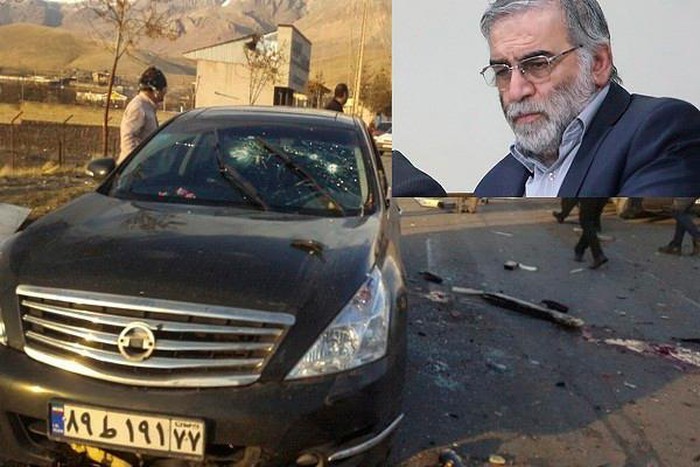(VOVWORLD) - The assassination of Iranian nuclear scientist Mohsen Fakhrizadeh last Friday in east of Tehran broke the short peaceful time in the Middle East following the signing of peace deals between Israel and several Arab countries. The world community is concerned that the assassination will ratchet up tensions in the Middle East.
 Iran's top nuclear scientist Mohsen Fakhrizadeh was killed in an ambush in Absard city, in East of Tehran.(photo: Times Of Israel) Iran's top nuclear scientist Mohsen Fakhrizadeh was killed in an ambush in Absard city, in East of Tehran.(photo: Times Of Israel) |
Mohsen Fakhrizadeh rarely appeared on Iranian or international media, but he was a key figure in Iran's nuclear weapons program.
Special figure
Western sources say Mohsen Fakhrizadeh was Iran’s top nuclear weapons expert. He was considered the “brain” of Iran’s nuclear program for many years. The International Atomic Energy Agency and Western intelligence said he was in charge of Iran’s secret nuclear program before it was closed in 2003.
Israeli Prime Minister Benjamin Netanyahu specifically mentioned his name in a 2018 presentation about Iran’s nuclear program.
Holly Dagres of the Atlantic Council said Fakhrizadeh was Iran’s Robert Oppenheimer, referring to the scientist who developed the world’s first nuclear weapon for the United States.
International media said Fakhrizadeh participated in Iran’s Islamic Revolution in 1979 and was a member of Iran’s Revolutionary Guard. He was an academic who lectured at the Imam Hussein University in downtown Tehran and was one of 8 Iranian citizens subjected to financial restrictions and travel prohibitions under a 2007 UN resolution for charges related to nuclear and ballistic missile research.
Middle East heats up
Some analysts say the assassination of Mohsen Fakhrizadeh will have a strong impact on Iran’s internal affairs and compare it to the killing of Qassem Soleimani, commander of the Quds Force, who was assassinated by a US air strike while visiting Baghdad early this year. In retaliation, Iran attacked US military bases in Iraq but caused no casualties.
If the culprit in the killing of Mohsen Fakhrizadeh is identified, Iran will retaliate.
Israel is suspected of carrying out the assassination. For years Iran has repeatedly said Israel should be wiped off the map and Israel has had tough reactions against Iran.
Iran’s Supreme Leader Ali Khamenei has said Iran will retaliate. President Rouhani has accused the Israelis of responsibility for the killing and pledged to pay them back at an appropriate time. At Fakhrizadeh's funeral on Monday, Defense Minister Amir Hatami said Iran is prepared to make a powerful retaliation for the assassination of Fakhrizadeh.
Multiple governments and international organizations have expressed concern and called on all parties to show restraint. Last Sunday the United Arab Emirates, Jordan, and Russia called on all countries to restrain themselves to avoid greater regional instability. UN Secretary General Antonio Guterres has asked all parties to avoid any action that might increase tensions. The German Foreign Ministry urged parties to keep calm and continue nuclear talks. The Turkish Foreign Ministry urged all parties to show responsibility and restraint and bring the assassins to justice.
Former CIA Director John Brennan said the assassination could ignite a conflict in the Middle East. Democrat Senator Chris Murphy, a member of the US Senate Foreign Relations sub-Committee on the Middle East said the killing of Mohsen Fakhrizadeh does not make the US, Israel, or the world any safer.